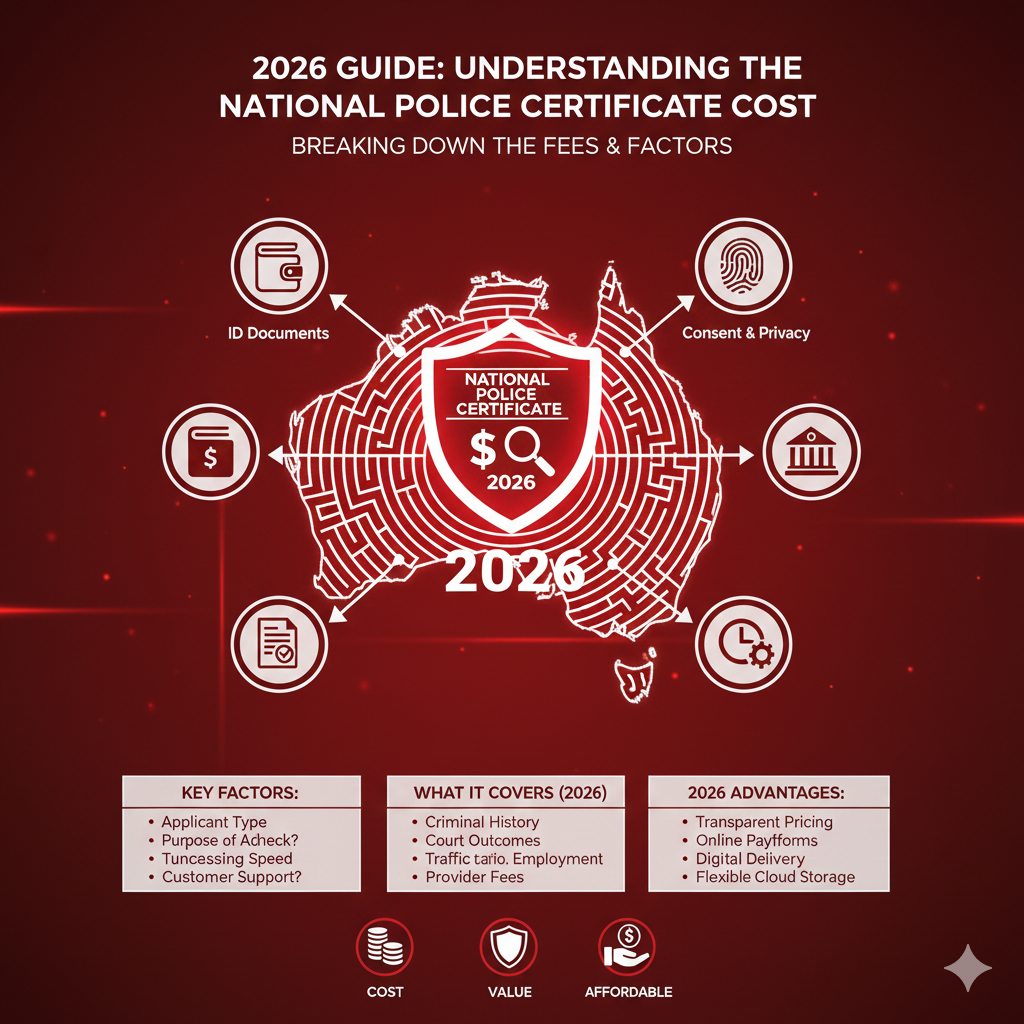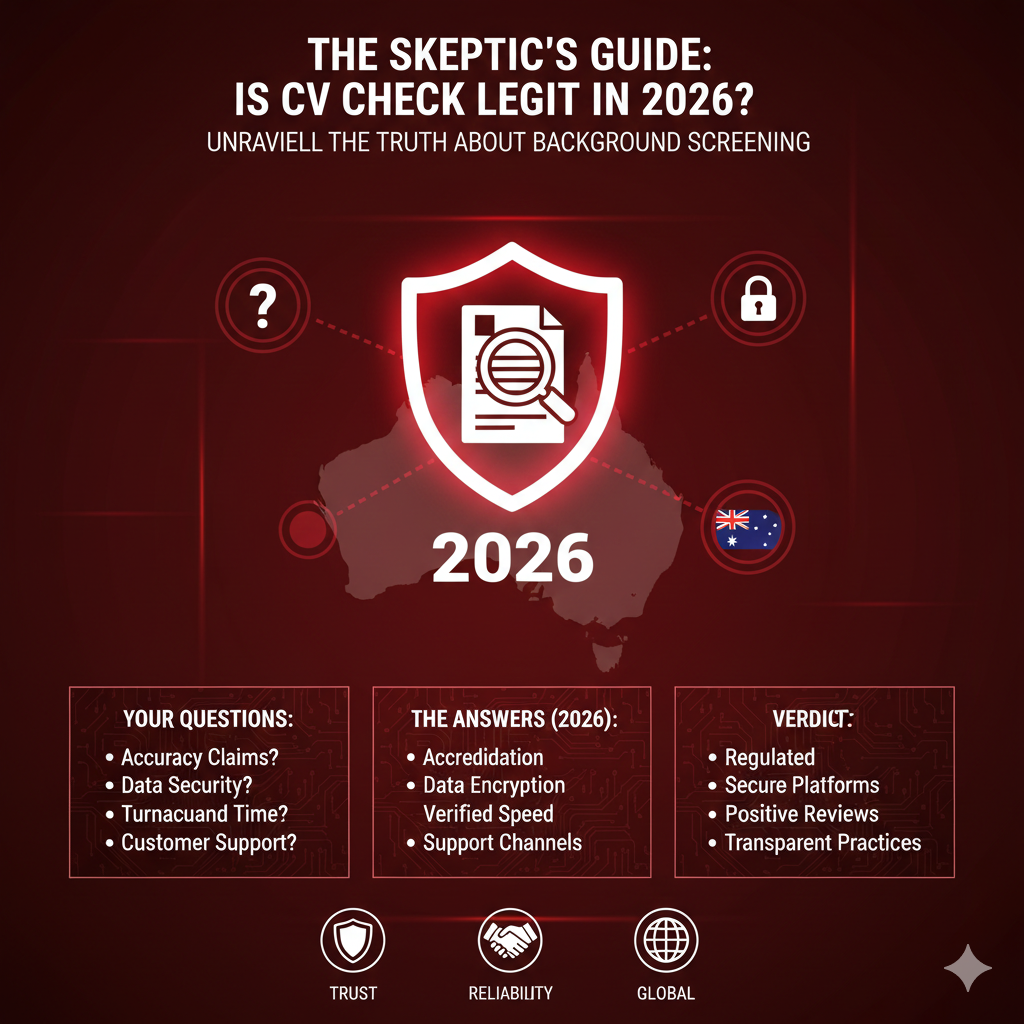Discover what international applicants need to know about obtaining international police checks. Learn the process, importance, and requirements to stay compliant in Australia.
Police Checks for International Applicants: What You Need to Know
Understanding the Need for Police Checks in Australia
In Australia, background checks are tightly controlled, especially in relation to employment, immigration, and voluntary work. The rise in international mobility has made cross-border criminal history verification necessary. Therefore, a mandatory component of the screening process for every person who has lived outside of Australia is a global police inquiry.
Whether you apply for a job, a visa, or a volunteer post, Australian officials may want proof that you have no criminal records from any past governments you have lived under that would disqualify you. This criterion aims to ensure that all residents, irrespective of their origins, maintain an equal amount of reliability and honesty. If you are unsure about the process of completing a police check, you can refer to our guide on How to Complete a Police Check Online in Minutes.
What Is an International Police Check?
Official records from government or law enforcement agencies in the nations where a person used to reside are known as international police checks. These credentials show if the person has had prior convictions in that nation.
These checks may go by a variety of names as determined by the nation, such as:
- Certificates of Police Clearance (PCC)
- Outstanding Conduct Certificates
- Records of Criminal History
- Certificates of Conviction
Auditing an individual’s past convictions outside of Australia is still an objective. When assessing international applicants for employment or residency in Australia, these inquiries are crucial, especially in delicate fields like government, education, healthcare, and care for elderly people. Understanding the difference between an ACIC and an AFP check is also important. If you’re unsure about the distinctions, check out our article on What’s the Difference Between an ACIC and AFP Police Check.
Who Needs an International Police Check?
Anyone who has spent a substantial amount of time—often 12 months or more—in another country during the past 10 years is typically obliged to undergo an international police check. This comprises:
- Migrants or people applying for visas to live in Australia either permanently or temporarily.
- International students might apply for a skilled migration visa or a job.
- Competent professionals who have lived and worked abroad.
- Volunteers or job seekers for positions involving vulnerable populations, including the elderly or children.
Regardless of a person’s nation of origin, the objective is to provide a constant degree of protection. Additionally, if you’re interested in understanding the various uses of police clearance certificates, including their application in employment and travel, take a look at our guide on Police Clearance Certificate Uses for Employment and Travel.
Why International Police Checks Matter
Protecting Public Safety
Governmental organizations and employers have a duty to make sure that people with troubling criminal records are not assigned to jobs requiring care or trust. Because it happened abroad, international police checks guarantee that no important history is overlooked.
Reducing Organisational Risk
Businesses and organizations may be exposed to legal, financial, and reputational problems if comprehensive overseas inspections are not carried out. Organizations reduce these risks by employing international police checks to verify individuals’ moral integrity prior to onboarding.
Ensuring Legal Compliance
Numerous companies, particularly those governed by laws, require compliance. For instance, applicants must provide police clearance records from each country where they have lived for a significant amount of time, according to Australian immigration officials. Firms also make sure that their screening procedures comply with legal and industry criteria. If you’re unsure about whether to get a police check, check out our article, To Get a Police Check or Not Get a Police Check.
How to Apply for an International Police Check
To undergo an international police check, an employee needs to qualify for the NDIS Worker Screening Check through the appropriate state or territory authorities. The activities are:
- Send in the form: You can apply through Rapid Screening, the nation’s police force, or an approved screening agency.
- Get certified translations: You will require a translation that has been approved by NAATI if the language of your police check is not in English.
- Ascertain particular requirements: Each country has a different application procedure. While some may demand fingerprint submissions, others may request a history of local addresses or certified identification credentials.
- Add the following to your application: You can apply through Rapid Screening, the country’s police force, or an authorized screening agency.
- Present the recipient with your completed certificate: As soon as the police check arrives, give it to your employer, immigration officer, or other government official, as required.
These procedures may frequently be sped up by partnering with an experienced organization like Rapid Screening, and applicants may contribute to a decrease in common errors.
Why Use a Trusted Screening Provider Like Rapid Screening
Getting through the police check process in multiple countries could be somewhat challenging. The demands for documentation vary broadly, and language and legal barriers are common.
Working with a reputable firm like Rapid Screening has many benefits:
- Professional guidance regarding national legislation.
- Comprehensive assistance, including document authentication and translation.
- Monitoring and communication to keep you updated at all times.
- Quicker response due to global networks and well-established processes.
Rapid Screening ensures that your international police checks meet all Australian immigration and employment agencies’ standards. Additionally, we offer 70% results within 24 to 48 hours, ensuring that your process is fast and efficient, no matter where you are located.
Challenges in Obtaining International Police Checks
Varying Processing Times
Some countries have quick online police check processes, while others take weeks or even months to process applications. This might be really awkward if you are working under a visa or employment deadline.
Language and Translation Requirements
Most Australian government agencies need all documents to be in English. If your police certificate was issued in a language other than English, you will want a certified translation.
Limited Access to Central Records
Information verification is more challenging in certain countries than in Australia since they do not have a centralized criminal record system. You may need to submit an application locally or through regional authorities.
Authentication and Apostilles
Additional steps may be required in order for Australian authorities to approve some police checks. These include being confirmed by the foreign affairs office of the country of origin or receiving an apostille certificate.
Tips for a Smooth Process
- Start early instead of waiting at the last moment. In certain nations, police checks occur more slowly than in others.
- Be meticulous: Make sure you have all the necessary documentation and confirm the rules in each country.
- Employing experts: Rapid Screening and other services ensure that all documentation is accurate, comprehensive, and legal.
- Maintain track of everything: Keep digital copies of all correspondence, filed forms, and invoices.
- Further steps: If your check gets postponed, contact the issuing company or your screening provider.
Conclusion: The Role of International Police Checks in Australia
Standardized screening standards are becoming necessary as global mobility rises. International police checks provide crucial background information that helps companies and government organizations make decisions. Inspections like these are more than a necessity; they are a vital component in preserving workplaces, communities, and Australia’s reputation as a safe and upright country.
Whether you’re applying for a job or any volunteer gig, ensure your application has the necessary police clearance documentation. Additionally, if the process appears excessive, know that qualified support is available.
Frequently Asked Questions (FAQs)
- Q) Who should have an international police check in Australia?
Generally, anyone who has lived for 12 months or more of the previous ten years living elsewhere than Australia whether for employment, schooling, or residency, must submit to an international police check. This is particularly pertinent when requesting a visa, a job, or assistance that involves vulnerable individuals. - Q) How to apply for an international police check?
You may submit an application through Rapid Screening, a permitted screening company, or through your country’s police department. Depending on the nation, requirements might involve fingerprinting, for instance identification documents, or a history of nearby addresses. - Q) What to do if my international police check is not in English?
For Australian authorities to approve your certificate, it must be certified by a translator who is NAATI-accredited if it was distributed in a language other than English. - Q) For how long is an international police check valid?
Most Australian organizations and visa agencies regard an overseas police check to be valid for up to a year after it is issued. Some companies, nevertheless, would rather have one that was granted in the previous three to six months. - Q) Is it possible to request multiple international police checks at once?
Yes, applying for several country-specific police checks at once through a company like Rapid Screening will expedite the submission process and save you time. - Q) What challenges to expect with international police checks?
Long processing periods, language hurdles, disparate legal requirements, and nations lacking centralized record systems are typical difficulties. Working with a reliable supplier could help you effectively handle these challenges.




